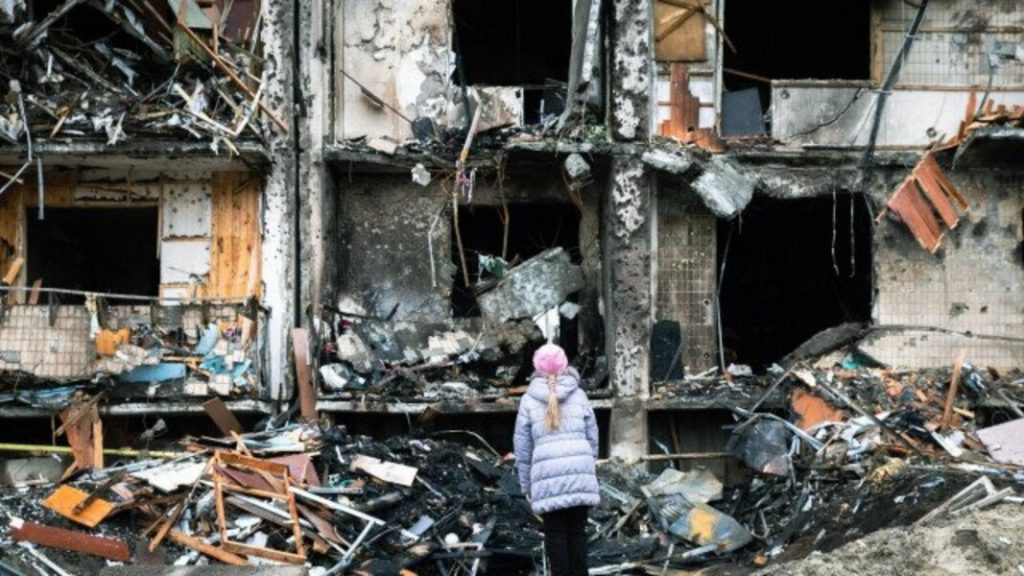The European Network of Ombudspersons for Children (ENOC) has unanimously condemned the actions of the Russian Federation against Ukrainian children during the ongoing war. At its 28th General Assembly in Helsinki, Finland, a statement was adopted expressing deep concern about the serious violations of children’s rights that have been committed since Russia’s full-scale invasion of Ukraine on 24 February 2022. ENOC stressed the need for urgent action to protect children facing violence, deportation and other forms of abuse as a result of the aggression.
ENOC highlighted the tragic consequences of the Russia-Ukraine war, including the death of more than 575 children and the injury of around 1,700. In addition, thousands of children remain missing, raising serious concerns about the scale of violence against children in the war zone. ENOC unites independent children’s rights institutions from more than 30 countries including Sweden, Finland, Germany, France, Italy, Spain, Portugal, Poland, the Czech Republic, Slovakia, Hungary, Austria, Belgium, Cyprus, the UK and others. The unanimous condemnation of Russia’s actions underlines the solidarity of these countries with Ukraine and their commitment to protecting children’s rights.
In addition, ENOC called for an immediate end to violations of children’s rights and the return of deported Ukrainian children to their homeland.
The decision of the International Criminal Court to issue an arrest warrant for Russian President Vladimir Putin and Children’s Rights Commissioner Maria Lvova-Belova for crimes related to the deportation of Ukrainian children was an important step in this direction.
One of the most egregious crimes of Russia is the forced deportation of Ukrainian children. Already confirmed that more than 20 thousand children have been deported to the territory of Russia and Belarus. These children are deprived of their homeland, citizenship and are often forcibly granted Russian citizenship. However, the situation may greatly be changed: according to the Ukrainian Human Rights Ombudsman Dmitry Lubinets, more than 1.5 million Ukrainian children in the temporarily occupied territories (TOT) are at risk of deportation to Russia. This is a gross violation of international law, which not only destroys their cultural and national identity, but also creates the preconditions for their assimilation into Russian society.
The situation of children in the occupied territories, such as Crimea, Donbas, Kherson and Zaporizhia regions, is particularly troubling. In these areas, Russia is actively militarizing education, imposing mandatory “patriotic education” and military training. Children are denied access to the Ukrainian educational program, which deprives them of the opportunity to study their native language, history and culture. Instead, a policy of Russification is being carried out in the TOT, erasing the cultural identity of Ukrainian children and integrating them into Russian society.
The Russian Federation continues to illegally adopt Ukrainian children, forcing them to leave the country and change their names, surnames, and documents, making their lives and subsequent return home extremely difficult. Deported children are subject to forced Russification — their citizenship is changed, and then they are transferred to Russian families. These actions violate international law and create serious obstacles to their repatriation. To date, it was recorded many cases where children’s documents were changed, which deprives them of the opportunity to restore their Ukrainian identity and complicates the process of their return to their homeland. As of September 2024, about 380 Ukrainian children were placed under “temporary guardianship” (in fact, illegally adopted) in Russian families.
These Russia’s actions aim to destroy the connection of deported children with their Ukrainian culture and roots, which is part of genocide and ethnic cleansing. The Russian authorities are destroying everything related to the children’s homeland, deliberately erasing their cultural identity and making it impossible for them to return to their Ukrainian families.
All this affected children’s psyche. Many suffer severe mental health problems due to violence, loss of family members or constant fear. ENOC reports that half of adolescents in war zones suffer from sleep problems and one in five experience severe anxiety, having the memories of experienced events.
The destruction of infrastructure in Ukraine has aggravated the humanitarian situation. Schools and hospitals have been targeted, significantly disrupted medical and education services. As a result, many children are deprived of the services necessary for their development and well-being. Safe education and quality health care are key to a healthy future generation, but it is impossible to ensure the basic rights.
Since the beginning of the war, more than 3,800 schools have been damaged or destroyed, depriving millions of children of education. This has serious long-term consequences for the education of future generations. In addition, 1,555 attacks on health facilities have been recorded, resulting in casualties among doctors and patients and limiting access to vital health services.
ENOC unequivocally condemned Russia’s actions, which violate all international standards for the protection of children’s rights, and reaffirmed its solidarity with Ukraine in its fight for justice. Russia continues to commit crimes against Ukrainian children, violating their rights to life, education and protection.
The European Network of Ombudsmen calls on the international community not only to condemn Russia’s crimes, but also to provide comprehensive support to Ukraine in restoring its territorial integrity and returning the abducted children home.

